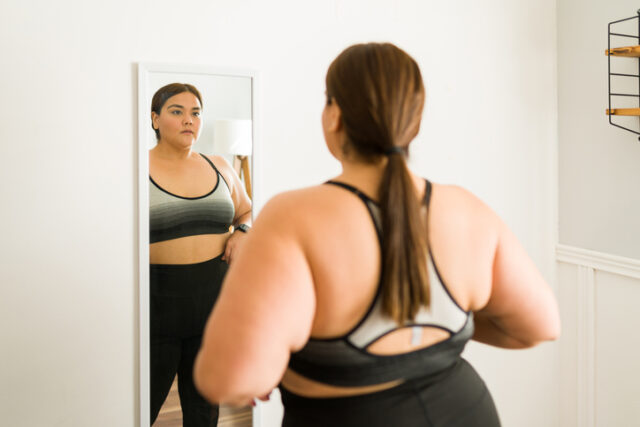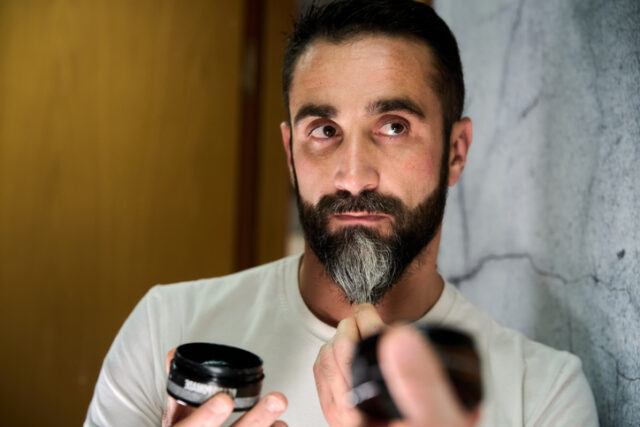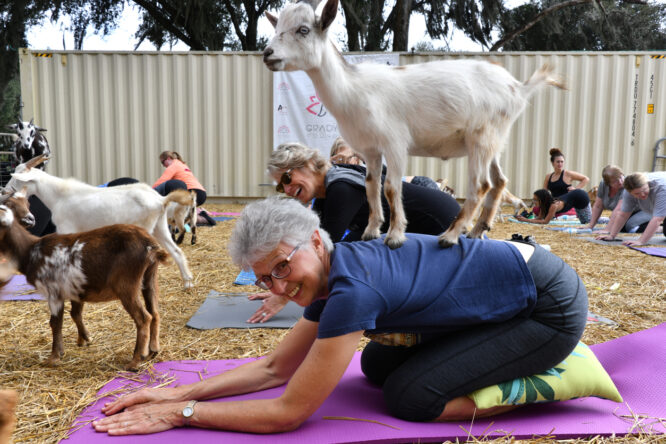Turning 40 doesn’t come with flashing lights or instant change, but as time goes on, you might start noticing changes that make you pause.

Maybe your skin feels different, or sleep gets a bit trickier. These changes can be surprising, but they’re also completely normal. Your body is evolving, just like you are, and there’s something powerful about accepting those shifts with honesty instead of panic. Here are some of the ways your body might switch things up on you after 40, and why none of it means you’re broken or past your prime.
1. Your metabolism slows right down.

You might notice that your body isn’t burning energy quite as fast as it used to. The same meals or routines that worked in your 20s suddenly don’t have the same effect. Weight might fluctuate more easily, even if your habits haven’t changed much.
This isn’t a personal failure, it’s biology. Your metabolism naturally starts to downshift, and that just means your body is asking for a slightly different kind of care. Slowing down doesn’t mean giving up; it means adjusting without judgement.
2. Your skin starts behaving differently.

Dry patches, fine lines, or uneven texture might creep in, even if you’ve always had predictable skin. Collagen production slows down, and that can make skin feel less plump or a bit more sensitive than before. It’s not about “fixing” anything. It’s about noticing and nurturing. The skin you’re in now has weathered decades of smiles, sun, and stress. It deserves care, not criticism. A bit more hydration and gentleness can go a long way.
3. Sleep becomes more unpredictable.

Falling asleep might take longer. Or you might find yourself waking up in the middle of the night for no clear reason. What used to be an effortless eight hours can start to feel like a battle. It’s not just stress or lifestyle—it’s part of how hormones change as time goes on. Your body’s rhythm changes, and so do your needs. Listening to those signals without panic makes it easier to adapt, rather than fighting against them.
4. Recovery takes a bit longer.

A long walk, an intense workout, or even a night of poor sleep hits differently now. Where you once bounced back in hours, it might now take a day or two to feel like yourself again. This change often feels unfair, but it’s just your body being honest about needing more time. Rest isn’t weakness. It’s part of strength. Learning to honour that slower bounce-back helps you feel better in the long run.
5. You lose muscle more easily.

Muscle mass starts to decline gradually, especially if strength training isn’t part of your routine. You might feel a bit less toned or strong, even if you’re staying active. That doesn’t mean you’re losing your edge. It just means the body’s maintenance systems need a bit more intentional effort. Small changes, like resistance exercises or protein tweaks, can make a noticeable difference.
6. Hormones fluctuate in new ways.

For women especially, your 40s might be the start of perimenopause, a phase where hormones shift slowly and unpredictably. Mood swings, irregular periods, or unexpected fatigue can show up even if everything else feels fine. This is a transition, not a breakdown. It’s your body recalibrating, and while it might feel unfamiliar, it’s not wrong. Being aware of the signs helps you meet them with compassion rather than frustration.
7. Your digestion changes.

Foods you used to eat without thinking might now leave you feeling bloated, gassy, or just off. Spicy meals, dairy, or late-night snacks may start triggering discomfort in ways they never used to. Your gut becomes more sensitive with age, and your body may produce less of the enzymes that help you break certain foods down. You don’t necessarily need to cut anything out, but you should pay attention and make tweaks that actually help you feel better.
8. Your joints get louder and stiffer.

Knees creak, hips pop, and mornings feel stiffer than they used to. It’s common to wake up with a bit more tightness or feel sore after activities that used to be second nature. Joint changes are part of getting older, but they don’t mean you’re falling apart. Staying mobile, doing gentle stretches, and keeping things moving can ease a lot of the discomfort. Your body isn’t fragile; it just needs a bit more warming up.
9. You might feel less urgency around appearance.

This one’s more emotional than physical. As your body changes, you may notice a bit of a change in what you care about. The obsession with looking perfect starts to fade, and feeling good becomes more important than impressing anyone. It’s a welcome relief for many. You still care, but you care differently. The focus moves from being “hot” to being healthy, comfortable, and confident. That change often brings more peace than any beauty routine ever did.
10. Your weight might settle in new places.

Even if your lifestyle hasn’t changed, you might notice weight redistributing. Maybe you carry it more in your midsection, thighs, or arms than before. It’s not just about food; it’s hormonal and completely normal. Bodies evolve. Fat shifts. It’s not something to fight—it’s something to understand. You don’t need to obsess over every curve. You just need to feel strong and well in the skin you’re in now.
11. You sweat differently.

Whether it’s more than usual or not as much as before, changes in how your body regulates heat can sneak up on you. Hot flashes might start showing up early, or you might find you overheat more easily during exercise. These changes are often hormone-driven, and while they can be uncomfortable, they’re not dangerous. Cooling strategies, light layers, and hydration help. And honestly, it’s just another sign that your body’s adjusting to a new rhythm.
12. Your cravings might change.

You might want more salty foods, fewer sweets, or crave more filling meals than before. Sometimes it’s linked to changes in blood sugar, hormones, or simply the body being smarter about what it actually needs now. Instead of fighting your cravings, you can learn from them. Often they’re trying to tell you something real, like you need more protein, more water, or just a better wind-down at night. You start trusting those messages more over time.
13. You become more in tune with what your body’s asking for.

In your 40s, the connection between mind and body often gets clearer. You start noticing early signs of stress, fatigue, hunger, or tension much quicker than before. You know when you’re pushing too hard, and you know when to step back. This awareness doesn’t mean you always act perfectly on it, but it gives you options. You’re no longer disconnected from your body. You’re in conversation with it, and that’s one of the most powerful shifts of all.



